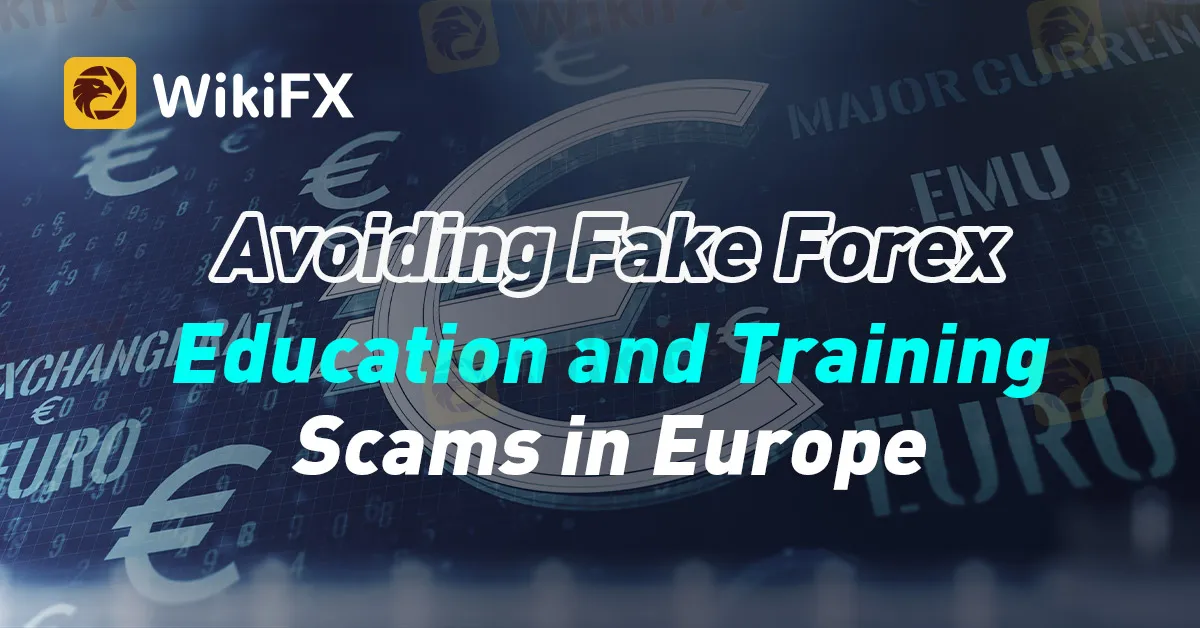简体中文
繁體中文
English
Pусский
日本語
ภาษาไทย
Tiếng Việt
Bahasa Indonesia
Español
हिन्दी
Filippiiniläinen
Français
Deutsch
Português
Türkçe
한국어
العربية
Avoiding Fake Forex Education and Training Scams in Europe
Abstract:Education and training are crucial for traders to develop their skills and succeed in the forex market. However, there are fraudulent entities that offer fake education and training programs, preying on traders' desire for knowledge. In this article, we will discuss how to recognize and avoid fake forex education and training scams in Europe.

Education and training are crucial for traders to develop their skills and succeed in the forex market. However, there are fraudulent entities that offer fake education and training programs, preying on traders' desire for knowledge. In this article, we will discuss how to recognize and avoid fake forex education and training scams in Europe.
Accreditation and Reputation
Genuine education providers often have accreditation from recognized institutions or affiliations with reputable organizations. Verify the credentials and reputation of the education provider before enrolling in any program. Look for reviews and feedback from past students.
Unrealistic Claims
Be cautious of education providers that make extravagant claims about guaranteed profits or quick success. The forex market is complex and requires time, effort, and experience to master. Legitimate providers emphasize realistic expectations and provide a comprehensive education.
Free vs. Paid
While some legitimate providers offer free educational resources, be cautious of entirely free courses that promise to make you an expert trader. Quality education often requires investment. However, research and ensure that the fees are reasonable and commensurate with the value provided.
Course Structure and Content
Evaluate the course structure and content before enrolling. Legitimate providers offer a well-structured curriculum that covers various aspects of forex trading, including risk management and technical analysis. Fake education programs may lack depth or provide outdated information.
Conclusion
Protect yourself from fake forex education and training scams by conducting thorough research, verifying accreditation and reputation, and critically evaluating the course content. For reliable information and resources on forex education, consider visiting WikiFX at www.wikifx.com. They offer comprehensive insights into education providers, helping traders make informed decisions and avoid falling victim to fraudulent schemes.

Disclaimer:
The views in this article only represent the author's personal views, and do not constitute investment advice on this platform. This platform does not guarantee the accuracy, completeness and timeliness of the information in the article, and will not be liable for any loss caused by the use of or reliance on the information in the article.
Read more

Investment Scam on Telegram: How a Woman Lost Over RM65,000
A 32-year-old accountant in Malaysia lost RM65,520 after falling victim to an investment scam operated through Telegram. The Kuala Terengganu district police confirmed that the scam was orchestrated by a syndicate that promised high returns to lure unsuspecting investors.

Crypto Scammers Are Everywhere —Here’s How to Stay Safe
With Bitcoin trading at around $100,000 and other cryptocurrencies experiencing significant gains, scammers are exploiting the surge in interest to deceive unsuspecting investors. Fraudulent schemes are becoming more sophisticated, luring victims into fake investment opportunities.

FCA Seizes £6.5M from Insider Trader and Fraudster in Crackdown
UK FCA confiscates £6.5M from insider trader and investment scammer, reinforcing commitment to combat financial crime and protect market integrity.

3-Day Online Scam Trap: Victims Lose $200K—Don't Be Next!
Scam syndicates are now exploiting fake online investment schemes, defrauding victims of millions within just three days. According to 2024 police data, online fraud cases surged by 29%, with losses exceeding RM1.57 billion. Non-existent investment scams alone saw an 80% increase, costing victims RM848.62 million.
WikiFX Broker
Latest News
Robinhood Halts Super Bowl Betting Contracts After CFTC Request
3-Day Online Scam Trap: Victims Lose $200K—Don't Be Next!
XS.com Launches AI Insights to Transform Trading Behavior
Woman Scammed Out of RM200,000 in Investment Fraud
FCA Cautions Against ALT-COINFX
Why Do Some Brokers Block Your Withdrawals?
Japan's January PMI has been released, investors need to pay attention to these points!
Investment Scam on Telegram: How a Woman Lost Over RM65,000
Why Do Countries Buy Gold and What Impact Does It Have on Gold Prices?
Hidden Forex Fees That Can Drain Your Profits
Currency Calculator


